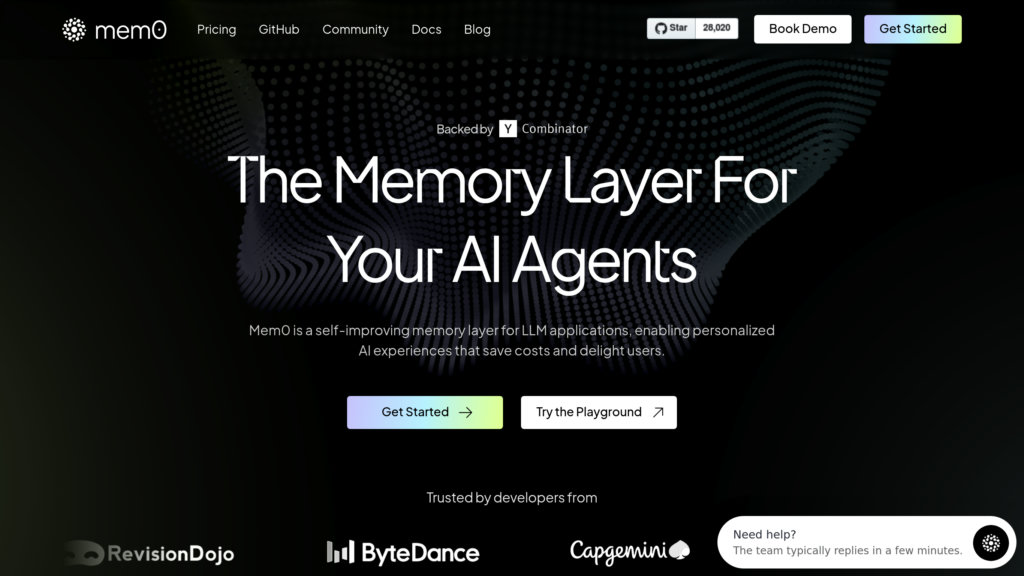Mem0
Intelligent memory system for AI personalization and cost optimization
Introduction
What is Mem0?
Mem0 functions as a sophisticated memory enhancement layer that empowers AI assistants and agents with lasting, context-aware memory capabilities that grow and adapt through ongoing user engagement. It merges the power of large language models with a dual-storage approach—utilizing vector databases for semantic memory access and graph databases for mapping connections—to generate responses that are deeply personalized and contextually appropriate. The system constantly learns and updates its knowledge base, allowing AI applications to retain user-specific preferences, historical dialogue, and situational context over multiple sessions. This creates more intelligent and responsive AI interactions while dramatically lowering operational expenses by intelligently selecting and prioritizing relevant information for LLM consumption. Integration is straightforward through user-friendly APIs, with developers having the choice between a fully hosted service or a self-managed open-source alternative.
Key Features:
• Enduring Contextual Memory: Automatically captures and preserves essential conversation elements, ensuring seamless continuity across different sessions and exchanges.
• Dynamic Personalization: Evolves its memory based on user interactions and input to deliver progressively more precise and customized AI responses.
• Dual-Storage Framework: Integrates vector databases for effective semantic matching with graph databases to monitor connections among different entities and memory traces.
• Intelligent Recall Mechanism: Utilizes semantic matching and graph exploration to retrieve the most appropriate and up-to-date memories, boosting response accuracy.
• Developer-Centric API: Straightforward, platform-agnostic APIs for memory storage and access, designed to work seamlessly with leading AI models including OpenAI GPT and Claude.
• Adaptable Implementation Choices: Provides both a convenient managed service and a highly flexible open-source alternative to suit various development requirements.
Use Cases:
• Customer Support Chatbots: Equips chatbots with the ability to recall customer-specific histories and preferences, minimizing redundant inquiries and elevating support effectiveness.
• Personal AI Companions: Develops AI assistants that retain user-specific details and previous interactions for more engaging and individualized conversations.
• Healthcare Assistants: Preserves patient records and treatment information to offer consistent, tailored health guidance.
• Educational AI Tutors: Monitors learner advancement and adjusts instructional methods using long-term memory of educational patterns.
• Enterprise Knowledge Management: Gathers and structures institutional knowledge from various interactions to facilitate well-informed business decisions.
• Gaming AI: Boosts gaming immersion by remembering player decisions, tactics, and advancement for dynamically adjusting gameplay experiences.
